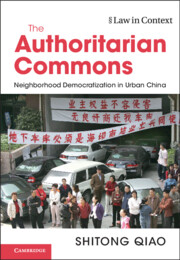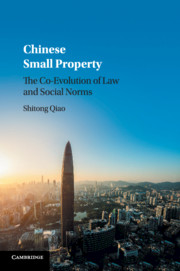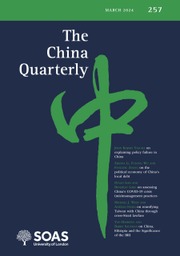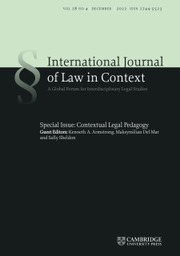The Authoritarian Commons
Based on six-year fieldwork across China including over 200 in-depth interviews, this book provides an ethnographic account of how hundreds of millions of Chinese homeowners practice democracy in and beyond their condominium complexes. Using interviews, survey data, and a comprehensive examination of laws, policies and judicial decisions, this book also examines how the party-state in China responds to the risks and benefits brought by neighborhood democratization. Moreover, this book provides a framework to analyze different approaches to the authoritarian dilemma facing neighborhood democratization which may increase the regime's legitimacy and expose it to the challenge of independent organizations at the same time. Lastly, this book identifies conditions under which neighborhood democratization can succeed.
- Provides an account of how Chinese homeowners practice democracy in and beyond their condominium complexes
- Examines how the party-state in China responds to the risks and benefits brought by neighborhood democratization
- Provides a theoretical framework to help readers understand the cross-regional variation of neighborhood democratization in China and identifies conditions under which democratization can succeed
Reviews & endorsements
‘In this fascinating study, Qiao documents and insightfully analyzes how the development of homeowners’ associations (HoAs) in China generated an ongoing democratic revolution in hundreds of thousands of neighborhoods. This book is a must-read for students of China, of the emergence of democracy, and of property theory.’ Hanoch Dagan, UC Berkeley School of Law
‘To truly know a country, you have to know how it divides up control and power over that one universal asset: land. The Authoritarian Commons: Neighborhood Democratization in Urban China is a brilliant study of the fights over, and the startling persistence of, homeowners’ associations in China. It is essential reading for anyone who wants to understand either modern China or the relationship between local and national governance more broadly.’ David Schleicher, Professor, Yale Law School
‘By showing us how Chinese homeowners have been able to develop a rich and effective associational life, Qiao opens up a new lens for our understanding of Chinese authoritarianism. A superb and illuminating study that will be of interest to property scholars as well as students of authoritarian governance.’ Tom Ginsburg, Leo Spitz Distinguished Service Professor of International Law, Ludwig and Hilde Wolf Research Scholar, The University of Chicago Law School
‘Shitong Qiao’s insightful book presents a compelling examination of how homeowners’ associations (HoAs) have evolved into entities that negotiate with state authority, reshaping the governance of urban communities. Through detailed case studies of Beijing, Shanghai, and Shenzhen, Qiao examines how property rights, local governance, and civic engagement intersect, offering an invaluable lens on civic participation under an authoritarian regime. In particular, Qiao’s study of the HoAs’ role during China's COVID lockdowns highlights the capabilities and limits of self-governance in urban neighborhoods.’ Dali L. Yang, William Claude Reavis Professor of Political Science, The University of Chicago, and author of Wuhan: How the Covid-19 Outbreak Spiraled out of Control (2024)
‘In The Authoritarian Commons, Qiao skillfully analyzes the burgeoning democracy of HoAs in urban China, a reality that is paradoxically both needed and feared by the authoritarian state.’ Yu Xie, Department of Sociology, Princeton University
Product details
January 2025Hardback
9781108840279
264 pages
250 × 176 × 20 mm
0.62kg
Available
Table of Contents
- Introduction
- Part I. Theory:
- 1. Defining the authoritarian commons
- 2. Neighborhood democratization
- Part II. A Tale of Three Cities:
- 3 The three styles of authoritarianism
- 4. Rule of law for democracy
- 5. Property: a political right, social right, or legal right?
- Part III. Benefits and Risks:
- 6. The origin of self-governed communities in authoritarian cities
- 7. Neighborhood governance during China's COVID lockdowns
- 8. Contesting party leadership
- 9. Associations beyond neighborhoods and property
- Conclusion: democracy in China?
- Appendix I. Summary of research methods
- Appendix II. Survey data and analysis.







